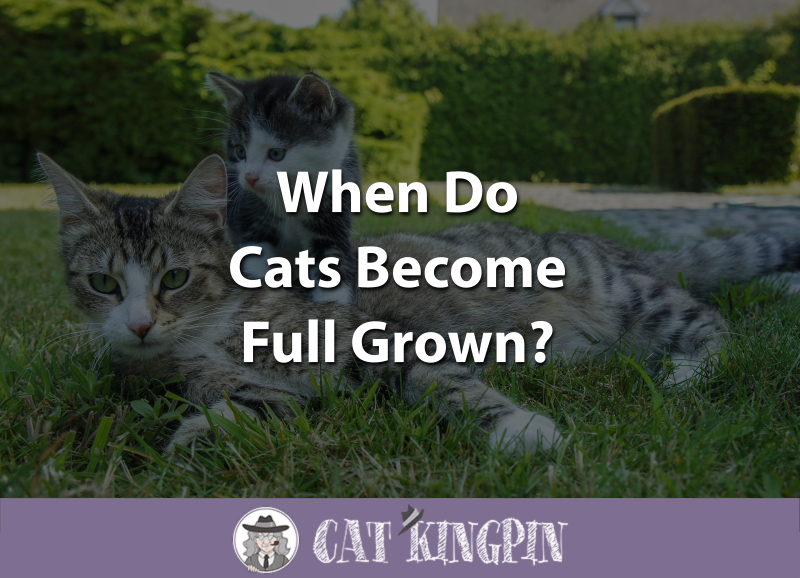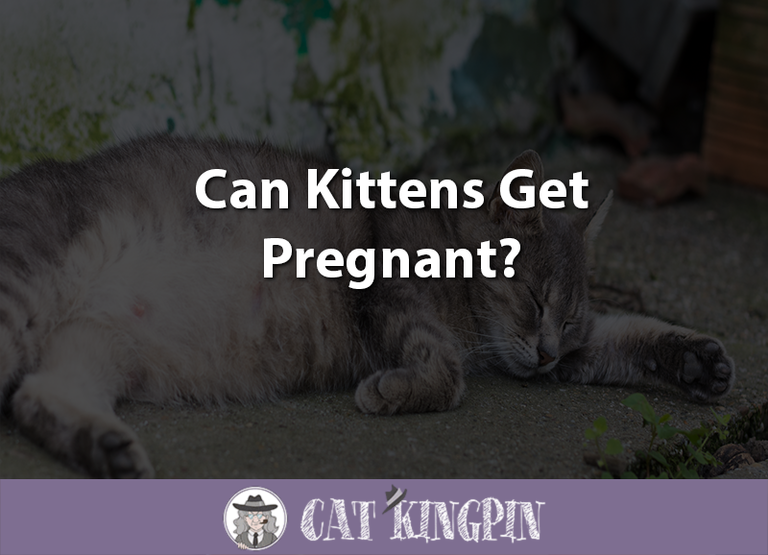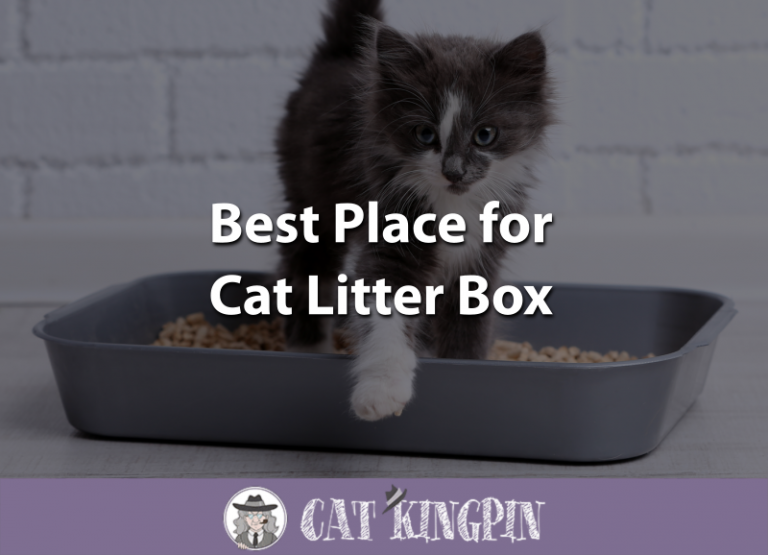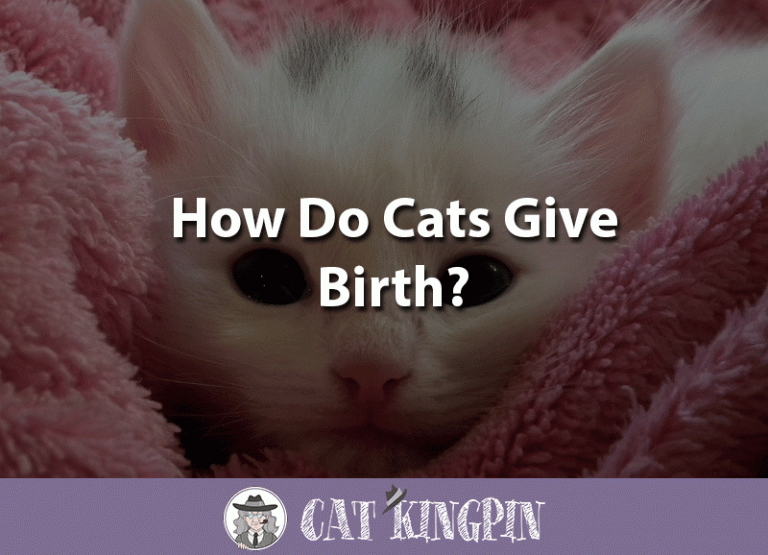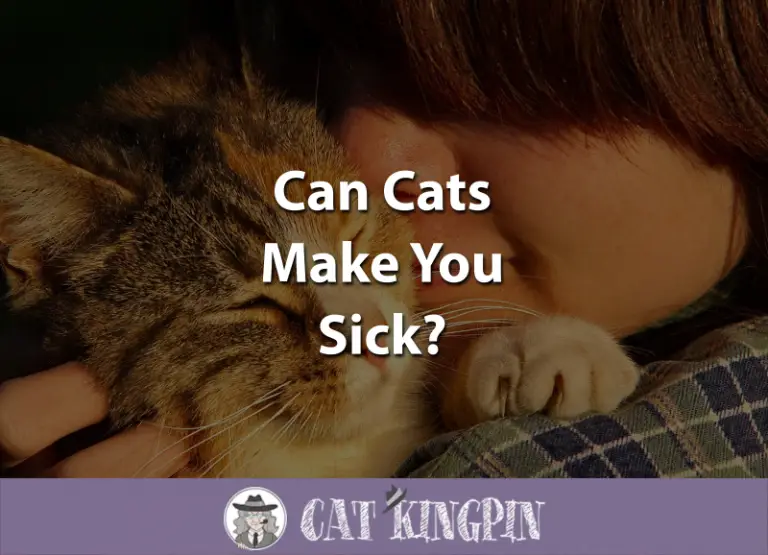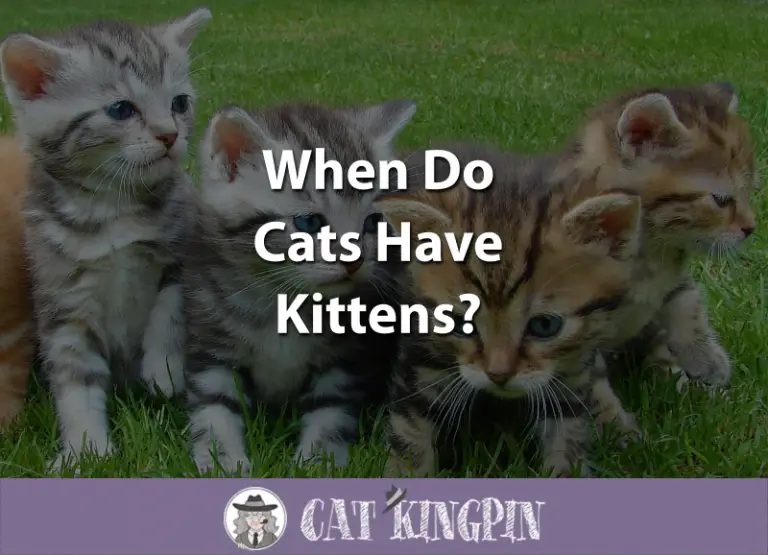When Do Cats Become Full Grown?
Depending on the day, you may wish your kitten would stay little forever.
But just like all babies, kittens grow up, which is a good reason to consider the 15+ year commitment that comes with cat ownership before bringing a cute little ball of fur home.
While cats may be emotionally immature for a few years, cats are technically considered “adults” at 12 months of age.
This milestone in your cat’s life will bring about some changes, so it’s important to be prepared.
In this article, we’ll cover the following:
- When Do Cats Become Full Grown?
- How Do You Know Your Cat Is Full Grown?
- What Do You Need to Do When Your Cat is Full Grown?
When Do Cats Become Full Grown?
Cats are officially considered “full grown” when they reach 12 months of age.
Kittens grow quickly, which is one of the many reasons it’s important to feed them a high-quality diet; they need all the healthy calories they can get. In fact, most kittens reach sexual maturity by the time they are six months old.
While your cat may still grow a little bit after their first birthday, for all intents and purposes they are officially declared “adult cats” at that point. It may be helpful to think of it in human years: at one year of age, cats are more or less the equivalent of a 15-year-old human being.
Here’s a brief timeline of kitten growth within the first year:
- Newborn – totally helpless, blind, deaf, unable to stand, male and female kittens have nipples.
- 1 month – eyes are open and they are able to play, walk, run, and interact. Feel free to start teaching them their name!
- 2 months – the average age when kittens are placed in their adoptive homes, they are old enough and heavy enough to be spayed or neutered.
- 6 months – average age of sexual maturity
- 7 months – most (if not all) adult teeth have appeared
How Do You Know Your Cat Is Full Grown?
While feline adulthood may officially start the day after they turn one, cats often retain some behaviors and attitudes that are more commonly associated with kittenhood.
Young adult cats are likely to be gangly, playful, and not quite “filled out.”
Some signs of adulthood in your cat are:
- Your cat may calm down a little. While they are likely to still be rambunctious, they won’t be as destructive or playful as a young kitten. When your cat starts to chill, you know that adulthood is right around the corner.
- Your cat may show interest in the opposite sex. This is especially true if your cat is not neutered or spayed (which is something you should remedy ASAP!). If your kitten mates, there are some signs to look for.
- Your other cats stop tolerating their nonsense. If you have a multi-cat home, one tell-tale sign of adulthood comes when your other cats begin treating your youngest cat as an adult. Adult cats are notoriously tolerant of young kittens, but this tolerance will begin to wane as the younger cat reaches adulthood. You may notice some minor spats as your youngest cat reaches adulthood and the dynamics of the household change.
Check out this time lapse of a kitten’s first year. See how fast they grow?
What Do You Need to Do When Your Cat is Full Grown?
While your cat will certainly be undergoing some major physical and psychological changes as they reach their first birthday, there are also some changes that you, as their human caretaker, will need to make.
Your veterinarian can advise you about any vaccinations that you may need to update, so it’s a good idea to bring your cat to the vet around the time of their first birthday. This is also the perfect opportunity to talk about spaying or neutering, if you haven’t already done so.
The most significant changes you will need to make involve your cat’s diet.
When your cat reaches 12 months of age you will need to begin transitioning them from kitten food to adult food.
Many brands of cat food have a “kitten” variety and an “adult” variety, so you may simply be able to get a different formula of the same brand.
In fact, the “kitten to adult” food change is the perfect opportunity to reevaluate the brand of food you’re are feeding your cat. It’s important for both kittens and adults to have optimal nutrition, and your cat’s food should make up the vast majority of their diet. That’s why it’s so important to make every bite count!
When looking for a high-quality cat food, you’ll want to look for the following:
- A food that lists meat as the first ingredient (ideally both first and second).
- A limited grain or grain-free formula, such as Taste of the Wild. Grains aren’t really important to your cat’s diet, and many high-quality cat foods have done away with them altogether. If you really want your cat to eat some grains, look for high-quality ones such as sweet potatoes and brown rice. Skip corn and wheat whenever possible.
When transitioning from kitten food to adult food, it’s best to do so gradually to avoid digestive upset. Mixing the new food with the old food for a few days and then gradually switching over completely is the best way to avoid accidentally making your cat feel sick.
You may also need to change the frequency with which you feed your cat once they become adults at 12 months of age.
While it’s better for kittens to eat multiple, small meals a day to prevent overeating, you may be able to feed your adult cat twice a day: once in the morning and once at a night. Avoid free-feeding your cat (leaving the food out all day) as this is one of the main causes of feline obesity.
Truth be told, cats don’t really have nine lives, so proper feeding is important.
Just because they’ve reached adulthood doesn’t mean cats are any less fun…check out this cat playing with a kitten!
So, when are cats full grown?
Cats are technically adults when they reach 12 months of age, but don’t worry. Your cat is likely to still be very active and “kitten-like” for a while.
In the meantime, make sure to gradually transition them to a healthy adult cat food, such as Taste of the Wild.
When did you notice your cat wasn’t a kitten anymore? What kind of behavior changes did you see? We want to hear all about it, let us know in the comments!

